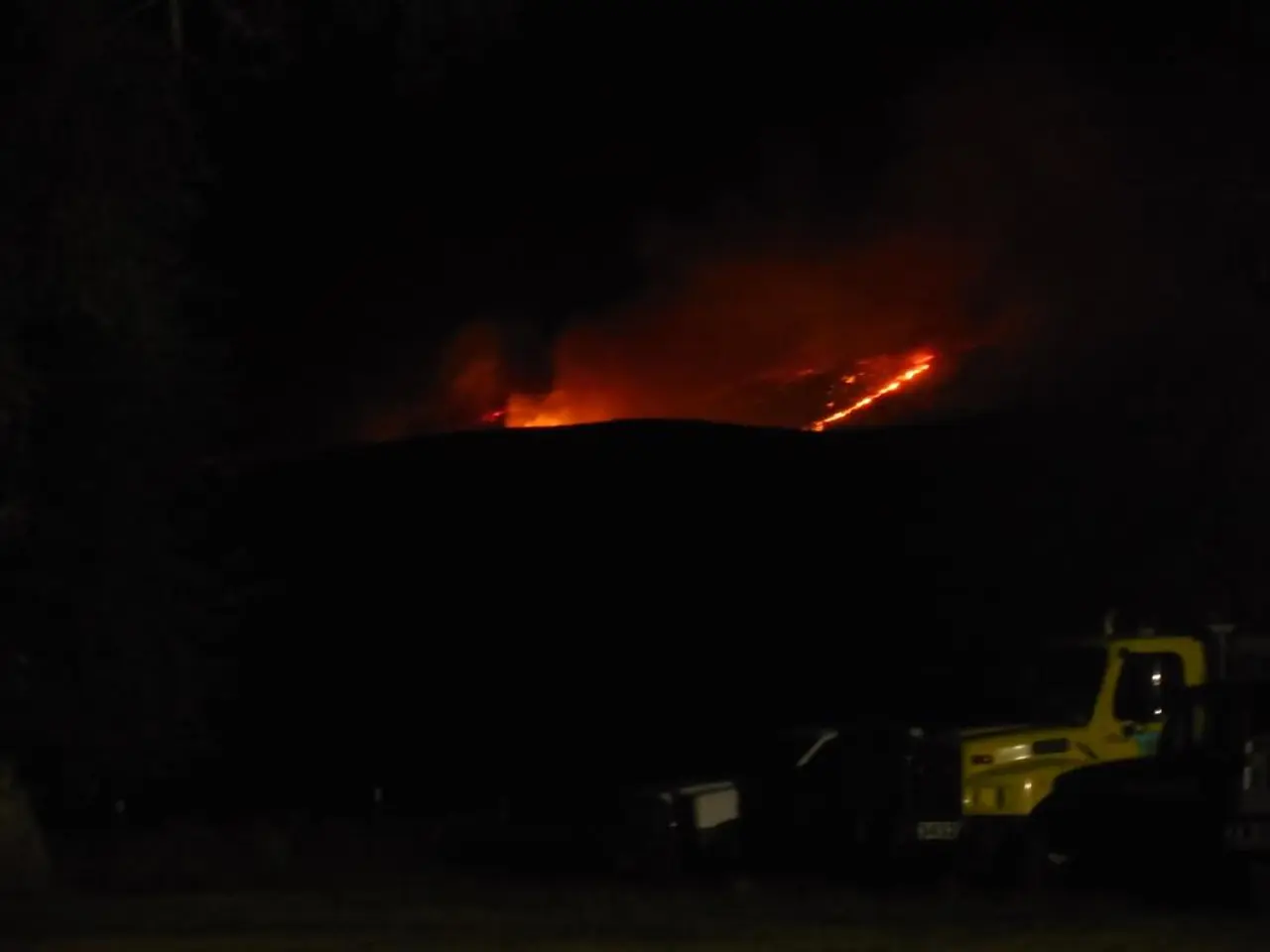escalating situation in Gaza as American Senator Graham foresees an Israeli strategic change
As of late July 2025, ceasefire negotiations between Israel and Hamas have hit a roadblock, with talks effectively paused. The U.S. and Israel abruptly ended discussions in Qatar on July 25, citing Hamas’s lack of good faith and demanding changes to Hamas’s proposals that the group has so far refused [1][3].
The original proposal under consideration involved a 60-day ceasefire during which Hamas would release some hostages (10 living and 18 deceased) and Israeli forces would withdraw to a buffer zone along Gaza’s borders [2]. Additionally, there were plans for an exchange of Palestinian prisoners held by Israel for Israeli hostages, although the number of prisoners remains a contentious issue [2][3]. Lastly, an increase in humanitarian aid to Gaza, coordinated mainly by the UN, was proposed, though this too remains a point of contention [2].
Key sticking points include Hamas’s insistence on a full Israeli withdrawal from Gaza and an end to the conflict outright, rather than a phased or partial solution [1][2]. Israel, on the other hand, refuses to concede on several red lines, including keeping Israeli military presence in the buffer zones and not allowing the Rafah Crossing to open fully, limiting Gaza’s access to external aid and movement [3].
Disagreement also exists over prisoner and hostage exchanges, with Israel unwilling to release large numbers of Palestinian prisoners in one batch, fearing the loss of leverage for releasing remaining hostages [3].
Israel has warned that if Hamas does not accept the terms soon, it will consider "alternative options," including annexing parts of Gaza’s perimeter, escalating punitive measures against Hamas [3][4]. Israeli Prime Minister Netanyahu and U.S. Special Envoy Steven Witkoff have framed Hamas as the main obstacle to progress [1][3][4].
The humanitarian situation in Gaza remains critical. Tom Fletcher, U.N. Assistant Secretary-General for Humanitarian Affairs, has warned that one in every three people in Gaza has gone days without food [5]. According to Gaza's Health Ministry, Israeli attacks since October 7, 2023, have killed at least 59,733 Palestinians and wounded 144,477 [6].
Internationally, the situation remains tense. Continued calls for humanitarian aid to Gaza amid a worsening crisis, despite Israel’s partial military pauses to facilitate aid delivery, are being made [1]. British Prime Minister Keir Starmer and other international figures acknowledge the possibility of a ceasefire but express concern about ongoing violence and starvation in Gaza [1]. The UK government is also considering the recognition of a Palestinian state, signaling broader geopolitical shifts influenced by the conflict’s deadlock [4].
In summary, the ceasefire talks are presently frozen with no agreement in sight, underpinned by deep mistrust and conflicting demands, while Israel contemplates harsher measures including territorial annexations if Hamas remains inflexible. The humanitarian situation remains critical, and international diplomatic efforts continue amid skepticism about achieving lasting peace soon [1][3][4].
References:
[1] Associated Press. (2025, July 26). Israel, Hamas talks in Qatar collapse, no deal reached. AP News. https://apnews.com/article/middle-east-israel-palestinian-territories-gaza-strip-israeli-arab-israel-palestinians-9e2496e8a64ddf6c85a50b314a830b41
[2] The New York Times. (2025, July 26). Israel-Hamas Cease-Fire Talks Collapse in Qatar. The New York Times. https://www.nytimes.com/2025/07/26/world/middleeast/israel-hamas-cease-fire-talks-collapse-in-qatar.html
[3] BBC News. (2025, July 26). Israel-Hamas talks in Qatar end without deal. BBC News. https://www.bbc.com/news/world-middle-east-58168213
[4] The Guardian. (2025, July 27). Israel threatens annexation of Gaza if Hamas does not agree to ceasefire terms. The Guardian. https://www.theguardian.com/world/2025/jul/27/israel-threatens-annexation-of-gaza-if-hamas-does-not-agree-to-ceasefire-terms
[5] United Nations Office for the Coordination of Humanitarian Affairs. (2025, July 28). Humanitarian Situation in Gaza Strip. United Nations OCHA. https://www.ochaopt.org/content/humanitarian-situation-gaza-strip
[6] Gaza Health Ministry. (2025). Death Toll. Gaza Health Ministry. https://gazahealth.ps/en/death-toll/
- NATO has expressed concern over the ongoing war-and-conflicts in the Middle East, particularly in the Gaza strip, and has urged Turkey (Turkiye) to use its political influence to help facilitate a resolution.
- The Turkish government, under the leadership of President Erdogan, has found itself in a delicate position, as it navigates the complex politics of the region, considering its historical ties with both Israel and the Palestinian territories.
- recently, the Russian government has increased its involvement in the region, offering mediation efforts to prevent further escalation of the conflict and promote political stability.
- General news outlets have reported that the Turkish foreign minister held talks with Israeli officials and Hamas leaders, aiming to revive the stalled ceasefire negotiations and reduce the risk of another war.
- As the humanitarian crisis in Gaza continues to worsen, with rapid increases in war-and-conflicts, the international community, including NATO and the UN, are pushing for an immediate resolution to ensure the delivery of much-needed aid and resources to civilians.





